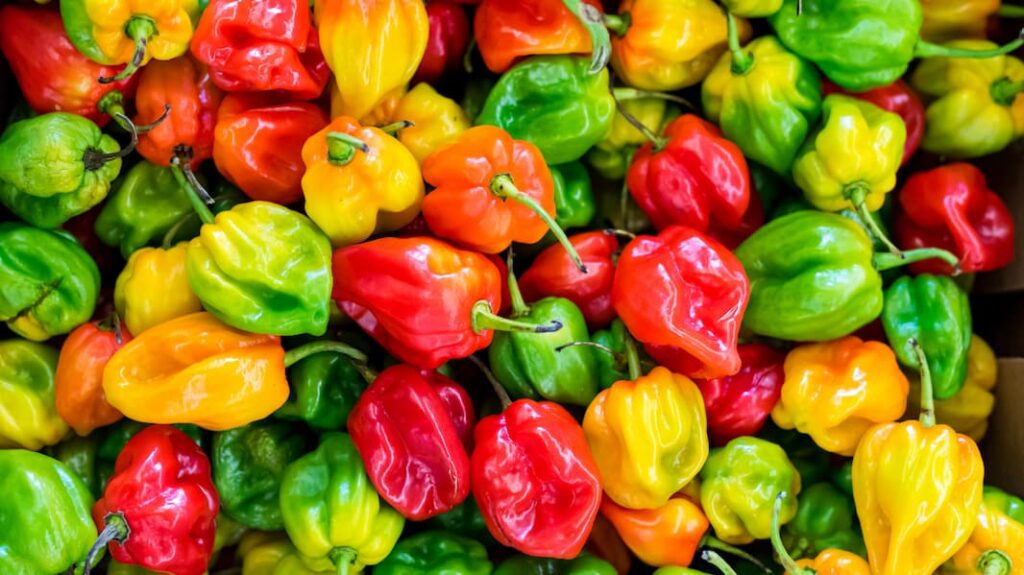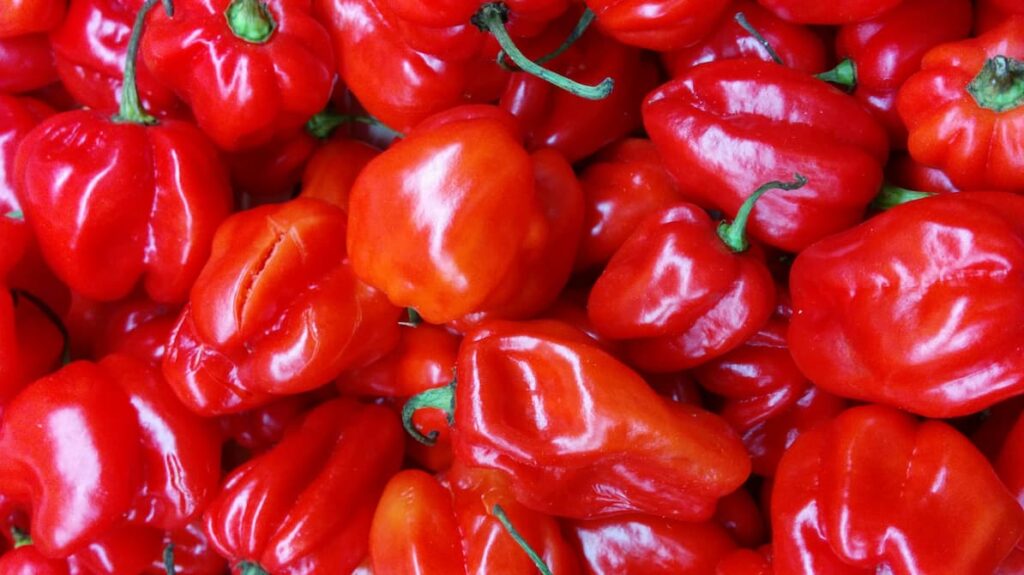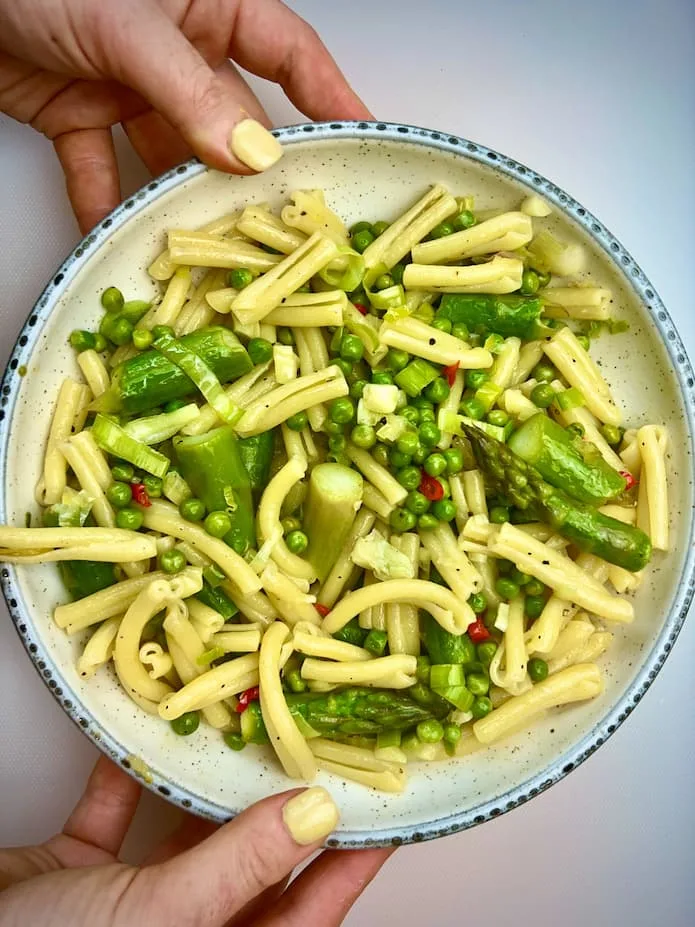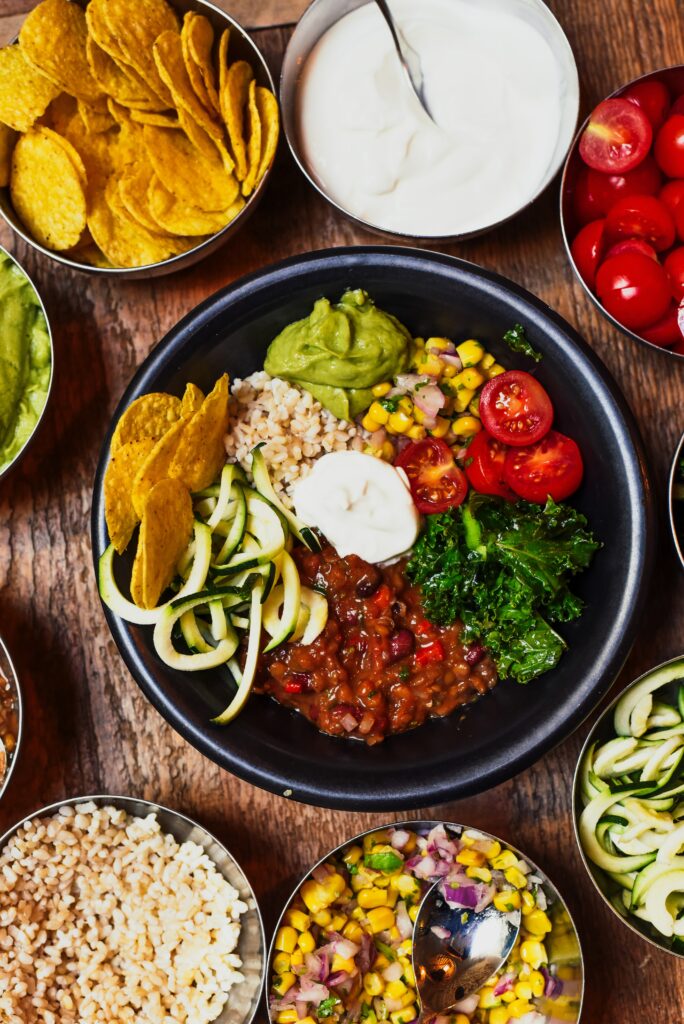International Hot and Spicy Food Day, January 16, 2024: Exploring the Fiery World of Hot Peppers in Vegan Cooking

Introduction:
Celebrate International Hot and Spicy Food Day this January 16th by diving into the vibrant world of hot peppers. This post not only explores the Scoville rating – a measure of the ‘heat’ of chili peppers – but also delves into the origins, history, and use of various peppers in vegan cooking.
Understanding the Scoville Scale:
The Scoville Scale, developed by Wilbur Scoville in 1912, measures the pungency (spicy heat) of chili peppers and other spicy foods. This scale rates the heat level by the amount of capsaicin present, which is the chemical compound responsible for the spicy sensation. The number of Scoville Heat Units (SHU) indicates the amount of capsaicin, with higher numbers representing hotter peppers.
Unveiling the World of Hot Peppers

Jalapeño
- Scoville Rating: 2,500 – 8,000 SHU
- Origin and History: Originating from Mexico, jalapeños are named after the city of Xalapa in Veracruz.
- Vegan Cooking: Perfect for vegan jalapeño poppers or salsas.

Serrano Pepper
- Scoville Rating: 10,000 – 23,000 SHU
- Origin and History: Also from Mexico, serranos are popular in Puebla and Hidalgo regions.
- Vegan Cooking: Great for fresh vegan salsas and guacamole.

Cayenne Pepper
- Scoville Rating: 30,000 – 50,000 SHU
- Origin and History: Named after the city of Cayenne in French Guiana, this pepper is used worldwide.
- Vegan Cooking: Adds heat to vegan soups and stews.

Habanero
- Scoville Rating: 100,000 – 350,000 SHU
- Origin and History: With origins in the Amazon, it’s widely used in the Caribbean and Yucatan Peninsula.
- Vegan Cooking: Suitable for spicy vegan sauces in small amounts.

Ghost Pepper (Bhut Jolokia)
- Scoville Rating: Over 1,000,000 SHU
- Origin and History: Originating from India, it was once the world’s hottest pepper.
- Vegan Cooking: Used in Indian vegan curries for extreme heat.

Scotch Bonnet:
- Scoville Rating: 100,000 – 350,000 SHU
- Origin and History: Popular in Caribbean cuisines, it shares similarities with the habanero.
- Vegan Cooking: Key in Caribbean vegan dishes for authentic heat.

Chipotle (Smoked Jalapeño)
- Scoville Rating: 5,000 – 10,000 SHU
- Origin and History: A staple in Mexican cuisine, chipotles are jalapeños dried and smoked for preservation.
- Vegan Cooking: Imparts a smoky flavor in vegan tacos and burritos.
Fun Facts about Hot Peppers
- Pepper Varieties: There are thousands of different types of chili peppers, each with unique flavors and heat levels.
- Culinary Use: Beyond heat, peppers are valued for their ability to enhance the overall flavor profile of dishes.
- Historical Significance: Peppers have been part of human diets for thousands of years, and they played a significant role in the Columbian Exchange between the New and Old Worlds.
Conclusion:
Hot peppers are more than just a source of heat; they bring history, culture, and flavor to our meals, especially in vegan cooking. From the mild bell pepper to the fiery ghost pepper, each variety offers a unique way to spice up your plant-based dishes. This International Hot and Spicy Food Day, embrace the diverse and fiery world of hot peppers and experiment with them in your vegan culinary adventures.
Ready to add some zest to your life with vegan cuisine? Sign up to ‘Meet the Vegans‘ and learn how to spice up your meals with the fiery flavors of vegan cooking. Join our community today and turn every dish into an exciting, plant-based adventure. Let’s heat things up in the kitchen together!






Responses